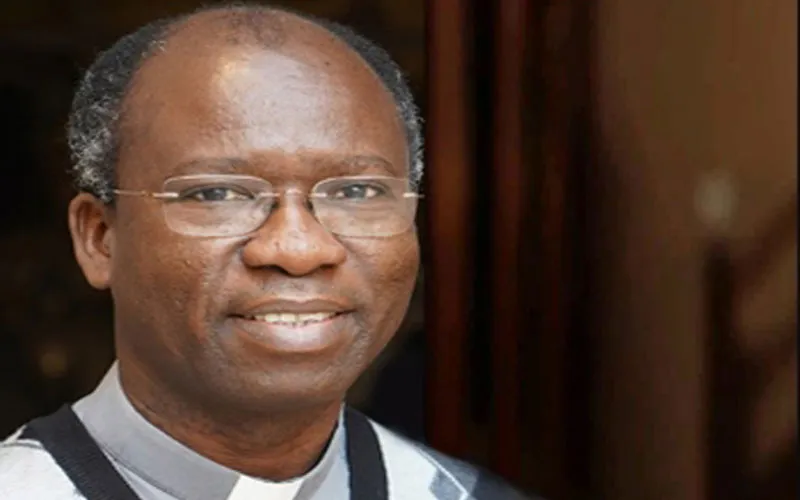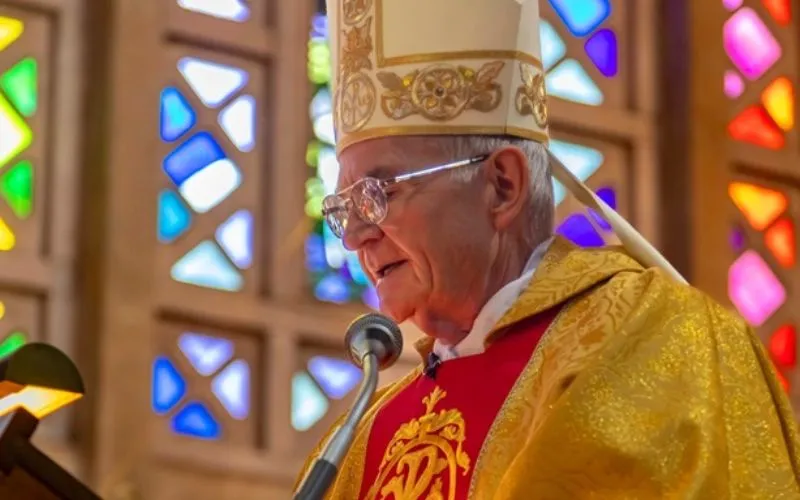ACI Africa: Joseph Ratzinger is a foundation that has been awarding prizes since 2011. What is this Ratzinger prize?
Fr. Béré: The “Joseph Ratzinger / Pope Benedict XVI Foundation” of the Vatican City aims to promote research and study of theology, with a particular reference to Sacred Scripture, Patristics, and Fundamental Theology. The statutes of the Foundation say that the Ratzinger Award is granted to those “scholars who have distinguished themselves for particular merits in the activity of publication and / or in scientific research.” Basically, Joseph Ratzinger’s life as a theologian of an outstanding caliber and a humble servant of the Church serves as a yardstick to measure the work of theologians and specialists of other fields.
ACI Africa: On September 30, it was announced in Rome that you are the first African theologian to receive the Ratzinger award. How did you qualify for the award?
Fr. Béré: I really cannot tell because the deliberation remains within the report of the Scientific Committee. The Press Conference released by the President of the Foundation, Fr. (Federico) Lombardi, and by a member of the Scientific Committee, Cardinal Gianfranco Ravasi, helps us imagine that they want to highlight African Theology, and they have picked my name to illustrate the kind of contribution to the development of African Theology they would like to encourage.
I did not intend to be seen. My deep desire was to really promote an in-depth research in theology for the Church in Africa, and for African societies.
Cardinal Ravasi pointed out my work on the book of Joshua, where the ideas of the land, leadership (Moses and Joshua), and the issue of transmission spoke to my own African context. The Cardinal further underlined an aspect of my research with an extraordinary grasp that amazed me: “Aural Criticism”. This line of my research looks at Scripture from the point of view of the “aural audience.” I want my people to be able to take part in construing the meaning of the biblical text, just as the people of the Bible itself did when the biblical texts were written.
As far as I know, this perspective is completely new in the field of exegesis that is the scientific interpretation of the Bible. I still need to continue exploring it and writing about it for the benefit of the scientific community, and of Africa where the “word-cultures” vs. the “written-cultures” can shed more light on the mysteries of the Bible. These concepts should not be reduced to “oral-cultures” vs. “written-cultures”. A “word-culture” can using writing, but the all the values of communication remain at the “spoken word” level, and continuously solicit “memory” and live interactions.
ACI Africa: What does this Ratzinger award mean to you personally?
Fr. Béré: First of all, it honors the labor of African Theologians. The echo I got from my African theologians worldwide confirms that. Secondly, it encourages me to pursue my own research in the field of Scripture. Africa has the potential to bring some insight into the exegetical work. Inculturation is not limited to dogmatic, moral, or spiritual theology, canon law, etc. It should involve Scripture studies as well.
In 2012, I gave a conference in Slovakia using “aural criticism”, and an American Bible scholar made a remark that stayed with me since then. He said: “Paul, it is because you are an African that you were able to see what you have demonstrated.” I did not mention Africa at all in my talk. The Ratzinger Award recognizes such a culturally inspired approach to the Bible. Thirdly, it gives more credibility to my voice whenever I speak to my students and show them the way forward to serve the Church in Africa. They will not fear to be led astray.








